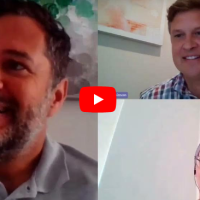LKS Quaero is offering a complete package of Council Transition Support for amalgamating NSW Councils. This is the first in a series of interviews in which our transition expert team members pass on some key nuggets of advice.
Susan Law has led and managed public sector organisations, including local government, health, and housing organisations, in New Zealand, Australia, South Africa, and the UK. Now an escapee from the Council chamber, she is using her vast experience in complex organisational management, strategic planning, and organisational transformation, particularly during periods of change, to support public sector organisations to position themselves to meet future challenges.
As a former CEO, Susan has completed the amalgamation of three Councils, from forging a new culture to reviewing and reshaping services to enable consistency of delivery and equalisation of costs and revenues. Here is her advice for General Managers of amalgamating Councils in NSW.
From your past experience as a CEO of amalgamating Councils, what are the key challenges in upcoming amalgamations in NSW?
Once the new elected members are established, it is important to align members’ aspirations for the transition with what needs to be done. Sometimes, the Council members are accepting amalgamation only because they have to. There is a need to focus the Council on the future, helping them to understand how their aspirations for the community might be able to be met.
For those elected members who will be in an advisory role during this time, it is important to help them to understand that they have a valuable role in providing support and direction in an organisation that is in transition. Whether they have a part in the new Council or not, they have a critical role to play in ensuring their organisation and community are best represented and that means paying as much attention to the transition issues as they paid to business as usual in the past.
The same applies to the employees. The leadership has to be motivated and inspired, so it is very important to be able to paint a picture of the new Council that is not just two or more bits of old organisations bolted together. Nobody gets out of bed to come to work just to save money, so pictures of working for a successful integrated community have to be painted. It is crucial to communicate that the efficiencies gained are not gained for their own sake, but to enable the Council to build the infrastructure and provide the services that the communities need, now and into the next generation. Councils are in the long term game and it is exciting to be able to play a part at a critical stage.
The last key challenge is running an ambidextrous organisation. That is, the challenge is keeping the business as usual going and sunsetting the old organisation, all while overseeing its refulgence as the new organisation.
What opportunities should General Managers look to seize?
- The chance to create a new organisation with a newly designed operating model that will flow down to the systems and processes. General Managers can do this by taking the best of both or all organisations while assessing the feasibility of implementing new disruptive technologies
- Visioning for a new culture that will be needed to establish and sustain the changes
- Establishing a new community strategy and validating the priorities with the integrated community, not just mashing together old strategies
If you were a GM of a NSW amalgamating Council, what would be in your 30 day “action plan” to launch the amalgamation process?
- Pulling together a compelling story and agenda for the change (clue: not saving money!). This needs to be backed up with a communication plan that includes a lot of different media, enabling the compelling story to be communicated
- Identifying a transition team charged with developing and implementing a program plan. This needs to cover governance of the program as well as management of it
- Being sure that there are clear roles, accountabilities, and authorities for the continuation of the delivery of services and sunsetting the organisation – plus the same for those in the transition team charged with the establishment of the new organisation. Workstreams should include the LKSQ change model
What else can GMs do to ensure the right, sustainable decisions are made for the long term?
- Accept that you won’t get it right every time. The important thing is to always be adapt and improve. Doing nothing guarantees obsolescence
- Ensure the program plan is not just about a series of tasks, but rather can show that completion of those tasks will mean discernible progress towards that compelling vision
- Make sure you have the right people leading the transition
- Gather evidence and get validation from all stakeholders – staff, customers, elected members – and ensure you have the mechanisms to capture their input
What should GMs of amalgamating Councils be doing right now to prepare?
- Assessing the change readiness of your staff. Unready staff will not only make the transition difficult, but will also find the transition difficult for them personally. Invest in establishing that state of readiness and implement interventions
- Start developing that compelling story for the amalgamation. The GM’s role is to make sense of what’s happening for their Council and staff
- Develop your leadership team’s change leadership capabilities
- Simplify your existing policies, especially HR, in readiness for transition
How can you help with amalgamation strategy?
- Share my experience in developing a compelling story and vision of the future
- Help with articulating that to different audiences, such as elected members and employees
- Help with establishing that ambidextrous organisation through design of the structure to encompass both business as usual and the transition
- Developing the program plan, including all the different workstreams
At LKS Quaero, we offer support to new Councils across culture and leadership, strategy development, financial analysis and advice, industrial relations, structure and recruitment. Transitioning to a new entity represents a massive opportunity. It’s a chance to re-set the vision, strategy, and culture for a new organisation. At the same time, there are pitfalls to be avoided across all areas of operations. See our Council Transition Support page for more information. If you’d like to know more, visit us at lksquaero.com or follow us on LinkedIn, Facebook, and Twitter.









